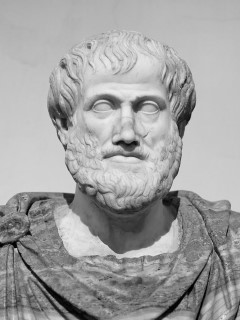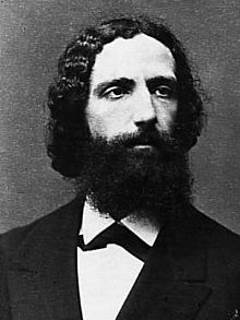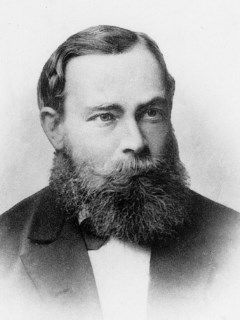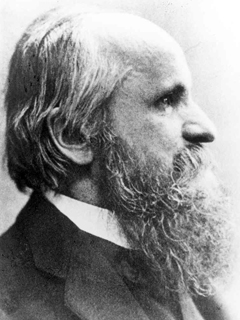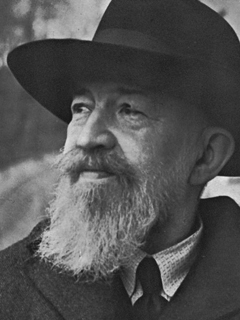George Heffernan
Professor für Philosophie am Merrimack College, USA.
Nähere Infos hier
(1983). Bedeutung und Evidenz bei Edmund Husserl: Das Verhältnis zwischen der Bedeutungs- und Evidenztheorie in den Logischen Untersuchungen und der Formalen und transzendentalen Logik. Ein Vergleich anhand der Identitätsproblematik. Bonn: Bouvier.
(1988). Am Anfang war die Logik: Hermeneutische Abhandlungen zum Ansatz der 'Formalen und transzendentalen Logik' von Edmund Husserl. Amsterdam: Grüner.
(1989). In the beginning was the logos: hermeneutical remarks on the starting-point of Edmund Husserl's formal and transcendental logic. Man and World, 22 (2), 185-213. https://doi.org/10.1007/BF01256645.
(1989). Isagoge in die phänomenologische Apophantik: eine Einführung in die phänomenologische Urteilslogik durch die auslegung des Textes der Formalen und transzendentalen Logik von Edmund Husserl. Dordrecht: Springer.
(1990). Das Bewußtsein vom Anderen: Zum Problem der Fragestellung in der V Cartesianischen Meditation Husserls. In H. Busche, G. Heffernan, & D. Lohmar (Eds.). Bewußtsein und Zeitlichkeit (pp. 213-247). Würzburg: Königshausen & Neumann.
with Busche, H. , Lohmar, D. (eds) (1990). Bewußtsein und Zeitlichkeit: Ein Problemschnitt durch die Philosophie der Neuzeit. Würzburg: Königshausen & Neumann.
(1997). An essay in epistemic kuklophobia: Husserl's critique of Descartes' conception of evidence. Husserl Studies, 13 (2), 89-140. https://doi.org/10.1007/BF00304673.
(1998). Miscellaneous lucubrations on Husserl's answer to the question "was die evidenz sei': a contribution to the phenomenology of evidence on the occasion of the publication of Husserliana volume xxx. Husserl Studies, 15 (1), 1-75. https://doi.org/10.1023/A:1006043225566.
(1999). A study in the sedimented origins of evidence: Husserl and his contemporaries engaged in a collective essay in the phenomenology and psychology of epistemic justification. Husserl Studies, 16 (2), 83-181. https://doi.org/10.1023/A:1006280712567.
(2002). Language, logic, and logocentrism in transcendental phenomenology: critical reflections on the Sprachvergessenheit of the later Husserl. The New Yearbook for Phenomenology and Phenomenological Philosophy, 2, 205-247.
(2009). An addendum to the exchange with Walter Hopp on phenomenology and fallibility. Husserl Studies, 25 (1), 51-55. https://doi.org/10.1007/s10743-008-9050-6.
(2009). On Husserl's remark that "[s]elbst eine sich als apodiktisch ausgebende evidenz kann sich als täuschung enthüllen …" (xvii 164:32–33). Husserl Studies, 25 (1), 15-43. https://doi.org/10.1007/s10743-008-9051-5.
(2010). The phronimos, the phainomena, and the pragmata: are we responsible for the things that appear to us to be good for us? an axiological exercise in Aristotelian phenomenology. The New Yearbook for Phenomenology and Phenomenological Philosophy, 10, 171-200.
(2011). "Mais personne ne paraissait comprendre" ("But no one seemed to understand"): Atheism, nihilism, and hermeneutics in Albert Camus' L'étranger/the stranger. In A. Tymieniecka (Ed.). Destiny, the inward quest, temporality and life (pp. 133-152). Dordrecht: Springer.
(2012). "Erit ergo spiritui subdita caro spiritalis" ("The spiritual flesh will therefore be subject to the spirit"): The heavenly pleasures of the disembodied and reembodied—an essay on Augustine and the problem of embodiment. In A. Tymieniecka (Ed.). Art, literature, and passions of the skies (pp. 197-222). Dordrecht: Springer.
(2015). Phenomenology is a humanism: Husserl's hermeneutical-historical struggle to determine the genuine meaning of human existence in "The crisis of the European sciences and transcendental phenomenology". In A. Tymieniecka (Ed.). From sky and earth to metaphysics (pp. 183-216). Dordrecht: Springer.
(2015). Phenomenology of evidence: promises, problems, and prospects. Dialogue and universalism, 25 (3), 9-24. https://doi.org/10.5840/du201525364.
(2015). The paradox of objectless presentations in early phenomenology: a brief history of the intentional object from Bolzano to Husserl with concise analyses of the positions of Brentano, Frege, Twardowski and Meinong. Studia Phaenomenologica, 15, 67-91. https://doi.org/10.5840/studphaen2015155.
(2016). Heidegger's critique of Husserl in his Black notebooks. Horizon Studies in Phenomenology, 5, 16-53.
(2017). The concept of Krisis in Husserl's the Crisis of the european sciences and transcendental phenomenology. Husserl Studies, 33 (3), 229-257. https://doi.org/10.1007/s10743-017-9209-0.
(2021). Existential evidence: The role of self-giving in Husserl's phenomenology of existence. Phänomenologische Forschungen – Neue Folge, 2021 (2), 137-158.
(2021). Phenomenology, psychology, and ideology: A new look at the life and work of Else Voigtländer. Phenomenological Investigations, 1, 5-70. https://doi.org/10.19079/pi.1.5.
with Cavallaro, M. (eds) (2022). The existential Husserl: a collection of critical essays. Dordrecht: Springer.


